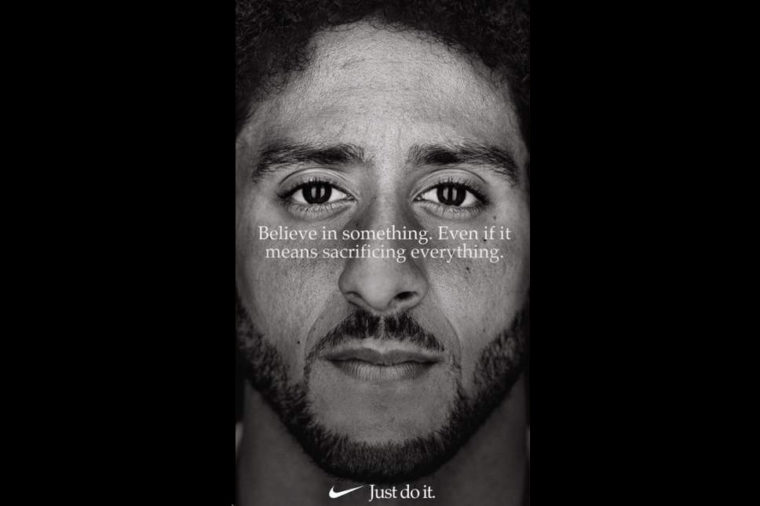“Believe insomething, even if it means sacrificing everything. #JustDoIt.”
When Nike tweeted these words on Labor Day over an image of quarterback Colin Kaepernick — who is advancing his legal claim that the NFL is blackballing him — the fan response was swift and vehement but also strikingly predictable, says Noah Cohan, a lecturer in American Culture Studies in Arts & Sciences at Washington University in St. Louis.

“The online backlash featured many of the hallmarks of the scorned sports fan video trope,” said Cohan, who studies sports narratives and fandom. “Nike clothing and accessories were defaced or burned. Angry fans ranted and vowed to boycott the apparel maker forever.
“These kinds of protests were popularized in theaftermath of LeBron James’ ‘Decision’ to leave Cleveland in 2010, but they’ve also bled into the political arena,” Cohan said. “Earlier this year, NRA supporters blew up their Yeti coolers when the company discontinued a discount for the gun lobby’s foundation.
“Such displays demonstrate the strength of the fan’s connection to an entity over which they have no control, beyond personal narratives and consumerism. They represent one of the only means by which such fans feel they can lash out when disappointed — but they’re also troubling symbolic representations of violence, particularly when the athlete who sparks their anger is African-American. They evoke a time when black bodies, not merely their consumptive representation, were the things being torn apart and burned.
“Kaepernick’s activism has played out in a time of upheaval in American political and social life, one marked by a president who feels no compunction about calling a demonstrating athlete a ‘son of a bitch’ who should be ‘fired.’ But reactionary Trump supporters were not alone in questioning the ad. Even those who support Kaepernick’s protest had reservations about Nike’s sponsorship of his message.
“It’s worth asking: What does it mean when a multi-billion-dollar company sanctions protest? Is Kaepernick’s work merely amplified by the corporate megaphone, or is it inescapably compromised? Let’s not forget, Nike sponsorship led Michael Jordan to demur taking political stands, apocryphally asserting that ‘Republicans buy sneakers, too.’ Does Nike’s sponsorship of Kaepernick mark a change in their sense of corporate responsibility, or merely a calculation about the flow of cultural capital?
“Nike is turning toward a younger, more diverse America because they’ve calculated that Trumpian claims about compulsory patriotism and black athletic obedience will not win out. In effect, they’re attempting to embrace Muhammad Ali during the 1960s — when his anti-war stance and refusal to serve made him a pariah to the older white American establishment — instead of waiting until the 1990s, when Ali’s resistance had been stripped of its urgency.
“In endorsing Kaepernick’s message, Nike seeks to profit from the labor of black athletes no less than they did in embracing Michael Jordan’s dunking ability. Whether that profit motive will prove exploitative depends on Kaepernick’s continued agency, his desire and ability to speak his truth regardless of what Nike wants him to ‘#JustDo’.”
